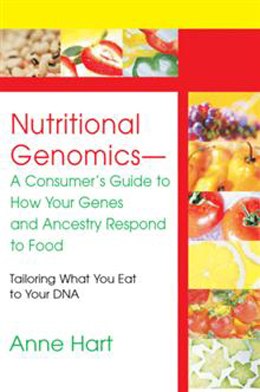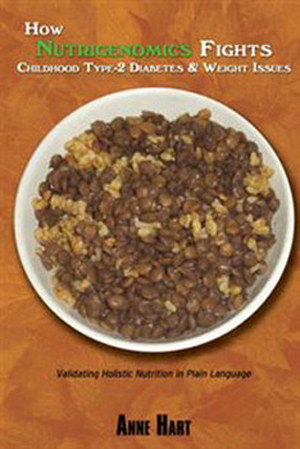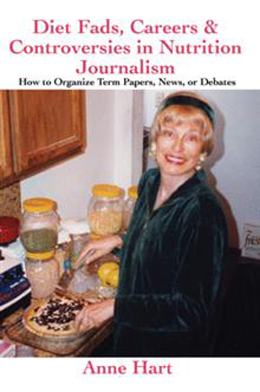Writing about food and nutrition? Where to get training





Books by Anne Hart.
There's a difference between nutrition journalism and food writing. For an example of what some food writers and/or editors emphasize when writing guides to dining, explanations of ethnic food choices, or restaurant reviews, check out Check out the May 10, 2012 Sacramento Bee column by Cathie Anderson, about award-winning food writer, Lesley Bargar Suter, a native of Sacramento's suburb, Fair Oaks.
There's a difference between nutrition journalism and food writing. For an example of what some food writers and/or editors emphasize when writing guides to dining, explanations of ethnic food choices, or restaurant reviews, check out Check out the May 10, 2012 Sacramento Bee column by Cathie Anderson, about award-winning food writer, Lesley Bargar Suter, a native of Sacramento's suburb, Fair Oaks.
Suter won a James Beard Foundation award for food coverage (food writing) in a general-interest publication.
In the 2012 Sacramento Bee article, she's mentioned as the associate editor for food and dining at Los Angeles Magazine, and a Sacramento Bella Vista High School 1999 graduate. Suter won a James Beard Foundation award for food coverage (food writing) in a general-interest publication.
Lesley Bargar Suter scored a win in the ‘Food Coverage in a General Interest Publication’ category. Her prize-winning features were “Chinese Food in L.A.,” “Breakfast in LA,” and the “Food Lovers Guide.”
Also check out the articles, "Los Angeles Food Editor Lesley Bargar Suter on What It Feels Like to Win a James Beard Award," and "Winners of the 2012 James Beard media awards." Issues of the Los Angeles Magazine's food articles which include top picks of restaurants, usually are kept by readers as guides to eating, especially where to eat in a city--and why the food there has been chosen by the particular food writer.
You can see the winning food writing entries at the Los Angeles Magazine awards site. The article published last year, May 1, 2011 in the Los Angeles Magazine noted that Los Angeles is home to the nation's largest authentic "array of Chinese food." If you read her article, you can see how the article uses the third person--'our' or 'we' as in "Herewith are our favorite dim sum dishes."
The third person in professional food writing such as 'our' or 'we' is used instead of first person 'I' when writing about food, since most food writers usually go to a restaurant with another person or a few friends--or are writing for a publication, where the use of 'we' also may refer to the magazine or the food writer as representing the magazine when in a particular restaurant reviewing or commenting on the menu items tasted/consumed. The award-winning article, for example, is a "guide to our Chinese-foodiest street."
James Beard Foundation award signifies the highest recognition in writing about foods
Food writers usually include picks for top restaurants in any given city in their articles. The James Beard Foundation Award for food writers signifies the highest recognition in writing about foods. And 2012 emphasized the food writing category's inaugural year. The James Beard Foundation awards cover all aspects of the industry—from chefs and restaurateurs to cookbook authors and food journalists to restaurant designers and architects and more.
In fact, the James Beard Awards are the highest honor for food and beverage professionals working in the entire North America, not only the USA. The awards are presented each spring in New York City. Nominees and winners are fêted at a weekend of events in New York City that has become the social and gastronomic highlight of the year.
What food writers usually emphasize in their articles or columns
When it comes to writing about food, food journalists usually review and/or cover restaurants, chefs, food stores, recipes, cook books and cooking information. Emphasis for many food writers working for magazines and newspapers usually focuses on dining or food either in a particular area or in travels. Food writers may cover grand openings of restaurants, wineries, beer breweries, methods of cooking, notable chefs, and any stories pertaining to food availability in one or more areas.
Magazines often hire food writers to cover stories about dining in a particular city or stories about foods and farmers' markets. Some food writers have specialties such as charcuterie, ethnic dining and food markets, vegan and vegetarian-friendly restaurants, and special cooking techniques as well as the work of renowned chefs. Charcuterie refers to the preparation of sausages, ham, pâtés, and other cooked or processed meat foods.
The James Beard Awards were given out this year in Gotham Hall, New York City. What food writers have to ask when interviewing chefs about various ethnic foods is to find out through experts and bloggers that specialize in that particular type of ethnic food how the food is prepared, why it's eaten on certain holidays or at various events, the history of the food, and how it's made.
Recipes may be included unless they're the chef's secret
Often recipes are included in the food sections of various publications such as magazines, newspapers, blogs, or commentaries and reviews on food, chefs, restaurants, markets, and various eateries or food wagons. Food writers need to find experts to teach them about how to food is prepared. But unless the food writers taste the food, there's no way to comment on what's in it and unless the recipe is secret, how to prepare the food.
With food guides, where to dine is emphasized, the best food picks, (in the writer's opinion or reviews) rather than the recipes for you to cook the same meal at home. The food sections of daily newspapers and general consumer magazines often have a spread of recipes.
Food writers need humility since what they write about usually is learned from chefs, food manufacturers, food market owners, or various specialty farmers. For example, Suter's winning contest entry focused on a guide to Chinese food in San Gabriel Valley. Suter also wrote guides to Los Angeles farmers' markets and breakfast eateries.
If you ever watch the Travel Channel, which is shown on Dish Satellite Network in Sacramento, you probably heard of Bizarre Foods with Andrew Zimmern. Suter received a compliment from Zimmern, according to the Sacramento Bee article. You can check out the issue on Chinese Food in Los Angeles magazine.
How nutrition journalism is different from food writing
Nutrition journalists focus on the healthy aspects of food and eating. In addition to any writing about where to eat in a city or where to buy ingredients to prepare food at home, nutrition journalists write about food as consumer science.
Safety and health in food, supplements, functional medicine, integrative, complementary, and alternative health is part of writing about nutrition--from phytonutrients to nanofoods. Nutrition journalists focus on the various students of the health benefits and effects of plant extracts, university research studies, and availability of food with emphasis on results of studies, testing of food and supplements, and the genetic and metabolic responses of humans (or animals) to various foods, vitamins, minerals, micronutrients, and plant or glandular extracts.
Nutrition journalists cover dietetics, nutrigenomics, food-related consumer science, and nutrition education studies as these topics relate to health and affordability. These writers may cover world or local hunger. One example of nutrition focus is on writing about hunger in Sacramento. See, Sacramento Hunger Commission. Examples of nutrition writing include researching and writing about investigations of supplement companies, supplement testing results of independent labs, the FDA, the US Department of Agriculture, CDC, food recalls, and university research on foods, seed extracts, fruits, and health.
Nutrition writers like to get food down to a science and make the technical terminology clear to most readers without science backgrounds. If a technical term is mentioned in an article, most nutrition writers define the word to let readers know what the research is supposed to look at and what the basic conclusion of a study is.
Nutrition writing emphasizes your body's response to food such as tailoring your foods to your genetic signature and/or metabolic reactions that show up when you take a test such as a medical exam. Nutrition writers cover topics such as studies on food allergies, and what foods or extracts are helpful. Some nutrition writers cover holistic health, aromatherapy, and what scientists are looking at in the way herbs and spices affect health.
Ethnic foods also are covered by nutrition writers, especially folkloric foods that have healing qualities and the scientists' research on whether the folkloric traditions actually work well to improve health. Nutrition writers may write about whether what's in the container is the same as what's printed on the label and focus on how to substitute healthier ingredients for traditional cooking ingredients that aren't healthy for the particular individuals eating those ingredients.
Weight management, the obesity epidemic, children's healthy nutrition are all topics covered by most nutrition writers. The focus is not only on where to dine, but on educating people to eat healthier. Food journalists don't have to be licensed as dietitians, but they may interview experts on health and nutrition to find out what studies are validated and are working with health as a goal. See, Hunger Facts.
16 percent in Sacramento County may go hungry each day says new report
One example of nutrition writing as compared to food writing is an article appearing in today's Sacramento Bee on the latest report on hunger in Sacramento County. Check out the May 10, 2012 Sacramento Bee article by Brad Branan, "16 percent in Sacramento County face hunger, report says."
Almost 16 percent of Sacramento County residents have a limited or uncertain ability to get nutritionally adequate and safe food, according to a new study funded by the United States Department of Agriculture and the Sierra Health Foundation.
As a nutrition journalist you would first look at the report which the Sacramento Hunger Coalition prepared. A food writer might be looking at where and what to eat and why to write a food guide, for example. In contrast, the nutrition writer also looks at other Sacramento nonprofits or covers similar agencies in the city being covered. A nutrition writer might obtain permission to sit in on a meeting of the Sacramento County Board of Supervisors to listen to the report being presented.
The nutrition writer would obtain a copy of the report and look for the main points. For example, noting that the demand for services at Sacramento's food banks rose 20 percent last year. Nutrition writers "tackle with words as observers" food-related problems of poverty, the affects of the recession on obtaining healthy foods, or write about how experts find solutions for hunger. The percentage of people going hungry in Sacramento would be noted.
Nutrition writers can specialize in food issues surrounding children, seniors, or the disabled
Nutrition writers can focus on those at highest risk for hunger or other responses to lack of food or to various foods available and affordable. One specialty might be to search reports and studies of how to prevent type 2 diabetes in children or obesity research.
Another specialty of nutrition writers might focus on parents of children, the disabled, and seniors who are at highest risk for hunger, according to the authors of the latest report on hunger in Sacramento County. Researchers surveyed more than 500 lower- income residents and more than 30 providers and administrators.
Nutrition writers look at research and find five main topics from the research that may also fall under the standard journalistic who, what, when, where, how, and why questions writers ask of researchers, studies, or those they interview. Nutrition writers looking at reports of research usually look for the following details:
1. The problem researchers are trying to solve or test.
2. Age and gender of the participants in any given research project.
3. What researchers propose
4. Conclusions of the study
5. What the outcome means for most consumers, made clear in plain language for readers.
For example, in the report on hunger in Sacramento County, the authors proposed a number of solutions for county leaders. Nutrition writers look for solutions to include in articles instead of only asking questions. It's important for readers to know there are possible solutions that can be followed, step-by-step in some articles by the average consumer.
One solution, for example is to educate the public about hunger. That's what nutrition writers do--educate the public about health, hunger, and food safety, affordability, and availability. Another topic for nutrition writers to cover is how to improve access to county human services that may be subject to budget cuts.
Numerous nutrition writers who focus on hunger are eager to write news of how to solve the issues surrounding cuts to services that help hungry people eat and find healthier food or cooking ingredients, such as making use of seasonal urban gardens for fresh produce instead of a steady diet of soda, chips, and fries that are so widely available to the hungry in search of fast-food.
Nutrition writers might also cover news of who is going to be approving the county budget for the fiscal year starting July 1 and what the results will be in so far as the results affect the 16% of the population in Sacramento reported as going hungry each day due to not enough affordable food being available where they live, such as a lack of supermarkets in lower-income neighborhoods.
Awards for Nutrition Writers
There are award-winning nutrition writers as compared to award-winning food writers. And some journalists and book authors do both types of writing. See, Award-winning Nutrition Writer | Lynda's Secrets to Success. Many award-winning nutrition writers also are registered dietitians with graduate degrees. Others have had training in nutrition education, medical and science writing, or professional writing with a specialty in nutrition.
Some nutrition writers have degrees in home economics journalism from the early 1960s. And others have degrees in consumer science. Nutrition writers can have a degree in holistic nutrition or holistic health or be trained in writing about food and nutrition in general. And some are self-trained nutrition writers who sometimes call themselves medical journalists. Nutrition journalists may specialize in weight management or food health and lifestyle and have a liberal arts degree and years of reading books on nutrition.
Phytotherapy writing
Nutrition writers may specialize in writing and reporting on phytotherapy research. See, Phytotherapy - UC Davis - SciVal Experts v3.6. And also check out other places to study, for example, the website of The College of Practitioners of Phytotherapy.
Or locally, at UC Davis' see, Latest papers on Phytotherapy, methods. Phytotherapy also is partly about research in herbalism. You could also check out, Nutritional Genomics - UC Davis. For freelance phytotherapy journalists, there are plenty of opportunities in Sacramento and Davis to look at what phtyotherapy studies are looking at and which projects are happening locally.
One branch of writing about phytotherapy is to look at what the master herbalists are accomplishing or researching. Scientists and master herbalists at various levels of study or research look at how plant extracts influence the health of humans and/or animals.
There are plenty of articles on the subject, phytotherapy in journals of integrative, complementary, functional, and alternative medicine such as the Townsend Letter, should you want to compile a reading list of medical and scientific journal articles to check out or read what numerous experts in the field. Examples might be physicians and vitamin researchers are writing about in the field of phytotherapy and/or phytonutrients or nanofoods and micronutrients.
New Careers in Dietary Supplement Science or Dynamic Phytotherapy
The Diploma in Dietary Supplement Science (Dip.D.S.S.) is a program of study offered by Huntington College of Health Sciences. It's ideal for those whose profession currently involves the use or sales of dietary supplements, or for those planning on entering such a profession.
The academic program provides a comprehensive education in dietary supplement science, including the safety, efficacy and research associated with the supplemental use of vitamins, minerals, nutraceuticals and herbs.
In addition, foundational courses in nutrition and biology provide a solid background for understanding the context in which dietary supplements can play a positive role in human health. Consider this curriculum if you would like to advise patients, clients or consumers in the appropriate use of dietary supplements. Completion of this program earns one a globally respected Diploma in Dietary Supplement Science (Dip.D.S.S.).
Or query, the American College of Health Sciences, an accredited university, that offers a program of courses in Dynamic phytotherapy, which is a blended modality, a careful balance between herbalism and homeopathy that draws upon and combines the benefits of both fields. Phytotherapy is the study of the use of extracts from natural origin as medicines or health-promoting agents.
Perhaps you'd like a career and a degree or diploma in phythotherapy, the use of phytonutrients from plants, such as herbs in a variety of nutritional and healing therapies. The program blends herbs with homeopathy and more. Nutrition, food, and health traditions can be studied in fields such as ethnobotany, herbology, medical anthropology, epidemiology, dietetics, phytotherapy, supplement science, naturopathy, homeopathy, or organic biochemistry. New therapies appear frequently.
What happens when alternatives open new debates? How does accreditation open doors to diversity in integrated, functional, complementary, and alternative healing practices? What heals best and is safe for each individual?
Also read these two articles. See Avoid "Chelation Therapy Pills.” FDA Consumer 19(7):34, 1985. In 1985, the U.S. Food and Drug Administration banned the sale of "oral chelation" products. Also see the article about mercury in amalgam teeth fillings titled, “The Problem with Mercury.”And view the article, “The Challenge to Professionalism by Homeopathy.”
Associations, Volunteerism, and Schools for Learning Nutrition and Alternative Medicine
American Holistic Medical Association - Provides courses focused on holistic medicine.
Academy for Healing Arts - Offers structured classes in Reiki, Crystal and Gemstone Therapy,
Magnified Healing and The Melchizedek Method. Crystal Healing Workshops,
Private Energy Sessions, and Crystal Sales.
Accredited Alternative Health Courses - Nutritional Consultant,
Holistic Health Practitioner and Master Herbalist programs through home study.
All that Matters - Wellness collaborative. Weekly classes. Wakefield, RI.
Alternative Healing Connection - Offers seminars and private sessions in
cranialsacral, DNA activation, reiki, and matrix connection.
Alternative Medicine: Christ Mind - Buddha Body - A free online tutorial in
Kinesiology by Dr. Philip Petersen, certified Kalos Health Facilitator.
Note the Disclaimer: It is not wise to use Kinesiology to supersede or
replace a doctor's recommendation.
American Alternative Medical Association
Associations and Institutes for Alternative Medicine, Naturopathy,
Homeopathy, Nutrition, and Drugless Healing
American Association Of Drugless Practitioners alternative
American association of drugless practitioner - Naturopathic
Acupressure Institute;
American Association of Drugless Practitioners;
American Alternative Medical Association
Arizona Medical Board of Acupuncture and Oriental Medicine
Open Directory - Health: Alternative: Holistic and Integrated ...
Google Directory - Holistic and Integrated Health
SteadyHealth.com: Find a Doctor
Global Institute For Alternative Medicine
Hippocrates Alternative Medicine Co.
Alternative Medicine Organizations in the Yahoo! Directory
Westbrook University Distance Education -- Endorsements
The National Clearinghouse on Internet Prescribing
Foundation for the Advancement of Innovation in Medicine (FAIM)
Institute for Chronic Illnesses
People for the Ethical Treatment of Animals (PETA)
Price-Pottenger Nutrition Foundation
Physicians Committee for Responsible Medicine (PCRM)
Accredited Schools of Nutrition and Health Sciences
Huntington College of Health Sciences
American College of Health Sciences
American College of Health Sciences
National Institute of Nutrition Education (NINE)
More International and American Colleges, Councils, and Courses in Natural Health and Nutrition
Clayton College of Natural Health
Council of Natural Medicine College of Canada (CNMCC)
International Quantum University for Integrative Medicine
Northwestern Connecticut Community-Technical College
Parker College of Chiropractic
School of Natural Healing Hong Kong Shang Hai TCM College of B.C. Canada
University of Metaphysical Sciences
The British Institute of Homeopathy USA LLC


